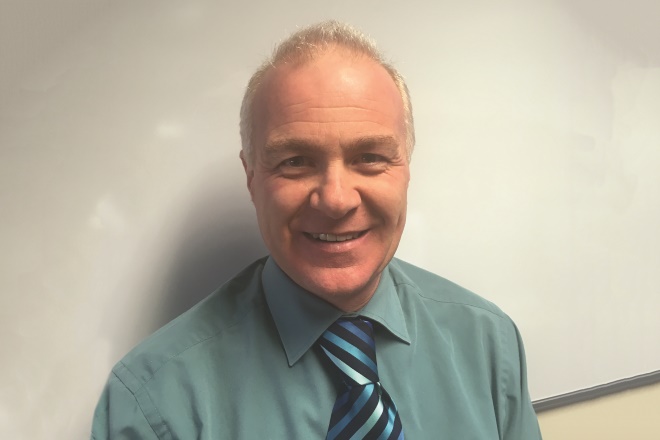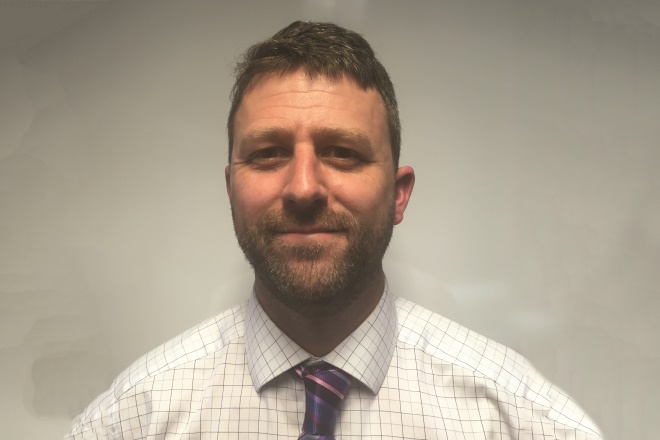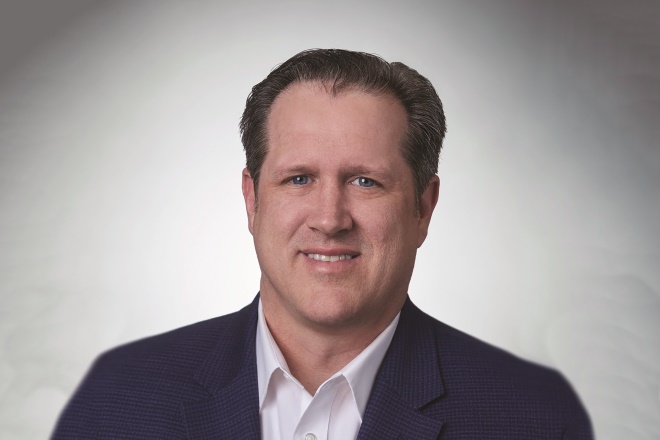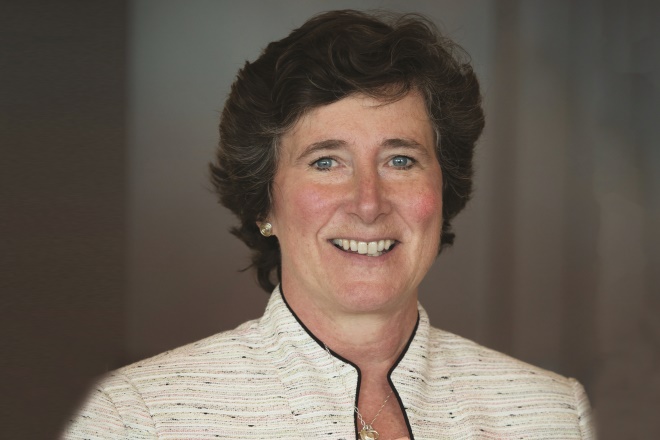
Shutterstock.com
There are 1 million gigabytes in a petabyte of data. The company Express Scripts, based in St Louis, Missouri in the United States, has collected 22 petabytes of healthcare data from 83 million patients. To give an idea of scale, if this amount of data was converted into an MP3 format, the music file would take approximately 44,000 years to listen to, says Tom Henry, chief data officer at the company.
The data include medical and pharmacy claims from Express Scripts patients, clinical and behavioural characteristics, and even tweets directed to the company. In fact, within three milliseconds of a patient picking up a prescription from a pharmacy, Express Scripts has logged the event.
All of this data hoarding has a purpose. Express Scripts is a pharmacy benefits manager (PBM) — a third party company that manages medicines coverage for clients who provide health insurance plans. It uses the data to predict in advance which patients won’t adhere to their prescribed medicines, who is likely to become addicted to opioids or even who is defrauding the health system. If patients are at risk for non-adherence, Express Scripts’ ScreenRx programme sends them personalised interventions designed by the careful analysis of yet more data. Patients also receive support from specialist pharmacists. For hepatitis C patients, the company says this support has cut the rate of non-adherence to curative treatment from 8.3% to 4.8%, saving US$30,000 in drug costs for every patient who is successfully persuaded to stick to their prescribed medicines.
With healthcare costs soaring, maximising the value of medicines has never been more important. Using the information from big data presents one promising way to achieve this. Healthcare is now just starting to catch up with business in its enthusiasm for exploiting data. But the need for strict patient privacy means that the information must be used with great care. Nonetheless, pharmacy is starting to identify the patterns that might fix the numbers on the medicines balance sheet.
Linking prescribing to outcomes
Wasted medicines are estimated to cost the UK health system £500m a year. In the NHS, an interest in the potential of big data started growing in around 2013. In Greater Manchester, which is in control of its own £6bn health and social care budget, two pharmacists have been leading the way.
“The plan to take charge of health in Greater Manchester means data are really important,” says Andrew White, head of medicines optimisation at Greater Manchester shared service, one of the pharmacists at the helm along with Andrew Martin, a strategic medicines optimisation pharmacist. Greater Manchester shared service provides expert support and advice to clinical commissioners. The system used, which has been jointly developed with clinical commissioning groups (CCGs) in the area, is called IMPACT. It collects data from all 501 GP surgeries across 12 CCGs, which serve a total of 2.8 million patients. Data on every drug that has been prescribed in the past five years is available, but analysis is largely done on the past 18 months. The system also analyses data from hospital activity and the Quality and Outcomes Framework (which looks at GP surgery performance).

Source: Courtesy of Andrew Martin
Andrew Martin, a strategic medicines optimisation pharmacist at Greater Manchester shared service, is one of those leading the way in using data to improve prescribing in the area
Using these data, the team compares prescribing versus hospital admissions between areas with similar demographics in Manchester. The best-performing GP surgeries are used to set a benchmark. “[This] allows Greater Manchester to ask, what it is that this area has done that could be integrated into another area?” says White.
“Sometimes, prescribing more can reduce hospitalisations, sometimes GPs prescribe less and are also able to reduce admissions, which we should understand and replicate. However, some areas spend 50% more and admissions are similar,” he adds.
Sometimes, prescribing more can reduce hospitalisations, sometimes GPs prescribe less and are also able to reduce admissions, which we should understand and replicate. However, some areas spend 50% more and admissions are similar
Each CCG has access to the data and can track changes in prescribing and hospital admissions to see if progress is being made. Antibiotic prescribing is one of the areas on which they are focusing. “This is a real public health issue and we think we can map it better than others,” says White.
Manchester has a higher prescribing rate for antibiotics than other regions. To tackle this, the team has narrowed down prescribing to GP surgery level. “The data allow you to identify, for example, the 5 [GP surgeries] that need greatest focus, rather than targeting all 50 [GP surgeries] in a CCG,” says White.
Once the poor performers are identified they can be matched with good performers, which are sometimes “next door”, says White. This allows the surgeries to start conversations with colleagues that might lead to a change in practice, and so improved patient outcomes.
Getting change to stick
White says that the key is to try to get these changes to stick, which “is hard to do”. Ultimately, it’s up to the individual clinician and the patient, he says. To help GP surgeries along the way, each CCG has a team that can be sent in to work with the clinicians, consisting of pharmacists, technicians, data quality managers and audit managers. “It’s a long, hard slog but very rewarding when you get there,” he adds.
In 2013, the launch of the programme generated “big savings”, but four years later, White says the focus has shifted to balancing cost savings with quality prescribing, and linking this to patient outcomes to ensure good value for the almost £1bn spent on medicines in Greater Manchester. The next stage of the project is to use the data to track outcomes for individual patients. But White says that this requires “robust patient consent, so this will rightly take longer to implement”.

Source: Courtesy of Andrew White
Andrew White, head of medicines optimisation at Greater Manchester shared service, says that pharmacists working in GP surgeries can be essential to affect changes in practice
White adds that the growing number of pharmacists working in GP surgeries can be essential to affect change. In fact, the UK government’s aim to continue to increase the number pharmacists in GP surgeries has caught the attention of Lucinda Maine, chief executive officer of the American Association of Colleges of Pharmacy, which has produced a report on the impact of big data on the pharmacy profession[1]
. “The reason that pharmacy can be successfully embedded is because it’s an analytical profession — we should position pharmacists to be interpreters of this data for the GP practice,” she says.
The reason that pharmacy can be successfully embedded is because it’s an analytical profession — we should position pharmacists to be interpreters of this data for the GP practice
In the United States, pharmacy academia is also playing a leading role in using these data to benefit patients. The school of pharmacy at Arizona State University, for example, used large datasets to identify patients who respond best to different means of communication, such as telephone calls versus emails.
Identifying poor adherence
This same approach is the one used by Express Scripts to help engage patients in its adherence programme, Screen Rx, which Henry says is one of the company’s most successful clinical products. The company estimates that the US health system spent US$317.4bn in 2012 treating medical complications that could have been avoided if patients had taken their medicines as prescribed.
ScreenRx uses over 300 different factors to predict adherence to treatment for more than 12 diseases, such as diabetes and high blood pressure. It has a 94% accuracy rate, which the company says is nine times more accurate than self-reported patient adherence. Once the analytical models have identified a patient in need, the characteristics of the patient are taken into account when deciding how best to help them. “For example, I live in a certain area, I have kids, therefore I need a convenience message that’s most likely to get into the flow of my life, or it’s a lost message,” says Henry.

Source: Courtesy of Express Scripts / Tom Henry
Tom Henry, chief data officer of Express Scripts, says that being the largest independent pharmacy benefits manager in the US gives the company the opportunity to analyse vast amounts of data
Each patient is assigned to one of the company’s therapeutic resource centers (TRCs), which have groups of pharmacists and nurses with disease-specific experience on hand via telephone to help ensure patient safety, improve medicines adherence and close gaps in care. “Experts in our TRCs help patients understand how their medications work, why they need to be adherent and how to get on a regimen that works for them,” says Henry.
Express Scripts is the largest independent PBM in the United States, meaning there is “an opportunity to analyse vast amounts of data”, says Henry. However, the sensitive nature of these data means that privacy is of the utmost importance. Under US privacy laws, the data must be “highly protected,” he says, and only used for ends that help our members. But ensuring privacy still presents one of the biggest challenges to using big data in healthcare, he adds. “We have to balance privacy of the person with our ability to leverage data — it’s a justifiable hurdle but definitely one we clear.”
We have to balance privacy of the person with our ability to leverage data — it’s a justifiable hurdle but definitely one we clear
In 2012, Express Scripts acquired Medco Health Solutions in New Jersey, another PBM which brought with it the TRC expertise that was then linked to Express Scripts’ expertise in data analytics. Henry says that this joined-up approach is reaping rewards. “We’re seeing that the output is greater than the sum of its parts. One plus one really does equal three.”
Some clients have spent less money on drugs in the past year as a result of this collaboration, while the cost of medicines has increased overall by 3.8% for commercial clients (which doesn’t include public healthcare like Medicaid) compared with a predicted 11% to 13% for the US system as a whole[2]
.
‘Do not prescribe’ lists
Part of Express Scripts’ cost-saving strategy is to use its data to hone in on prescriptions that are not cost effective. In 2014, the company introduced a preferred formulary of drugs, now the most widely used in the United States. It includes 85 medicines that are excluded, based on their effectiveness, value for money and the availability of alternatives. This saved its members US$1.3bn in 2016 and is estimated to save US$1.8bn in 2017. Some clients also use a tiering system for drugs, where medicines treating the same condition are covered, but the cost to patients is lower for preferred drugs.
In the UK, those spearheading the use of big data in pharmacy practice are also using the information to make decisions about what drugs to fund. Greater Manchester has a ‘do not prescribe’ list based on similar criteria to those in the United States, which saved around £250,000 per quarter when it was launched in 2013 and currently saves about £150,000–£200,000 per quarter.
But some pharmacists say that, in practice, placing certain drugs off limits can have unintended consequences. In the United States, where the tiering system is widespread, Maine says she would guess most pharmacists “would express frustrations”. She adds that she has received reports from pharmacists of inappropriate medicine use in patients that they attribute to formulary decisions.

Source: Courtesy of American Association of Colleges of Pharmacy
Lucinda Maine, chief executive officer of the American Association of Colleges of Pharmacy, says that placing certain drugs off limits can have unintended consequences
Maine explains that there are incentives to choose a favoured drug on a lower tier and that higher-tier drugs may be offered but the patient has to pay more. “PBMs would say that they’ve drawn on large datasets to make these decisions, but that doesn’t always lead to the best decision on the ground,” says Maine.
PBMs would say that they’ve drawn on large datasets to make these decisions, but that doesn’t always lead to the best decision on the ground
White adds that it’s also important to be mindful of medicines optimisation principles when making prescribing decisions, adding that a more nuanced approach to do not prescribe lists might be needed. “It may be that, in some areas, there is an acceptable de minimis level of prescribing, which takes account of individual circumstances,” he says.
Notwithstanding some evident frustrations, the increasing influence of big data in pharmacy practice also presents opportunities for the profession. “PBMs have become pretty good at examining data and [providing solutions] and this employs a substantial number of pharmacists,” says Maine. However, as Henry points out, one of the biggest barriers Express Scripts faces is a lack of talent — people that possess the skills of a data scientist as well as business acumen, mathematics and technical expertise. “We work with several universities to help them develop this talent,” he says.
Maine says she is starting to see some graduate courses emerge that lead to a double major in pharmacy and information technology. “A [doctorate degree in pharmacy] with a masters in IT is a slam dunk, career wise,” she says.
She reckons that it will be three to five years before the use of big data becomes more mainstream. When it does become more integrated into practice, Maine says: “I don’t think it will be front-line clinicians driving into the data themselves — I think it will be a centralised facility of pharmacists working to understand how the data can influence decisions.”
References
[1] Baldwin JN, Bootman JL, Carter RA et al. Pharmacy practice, education, and research in the era of big data: 2014-15 Argus Commission report. American Journal of Pharmaceutical Education 2015;79:S26. doi: 10.5688/ajpe7910S26
[2] Schumock GT, Li EC, Suda KJ et al. National trends in prescription drug expenditures and projections for 2016. American Journal of Health-System Pharmacy 2016;73:1058–1075. doi: 10.2146/ajhp160205


